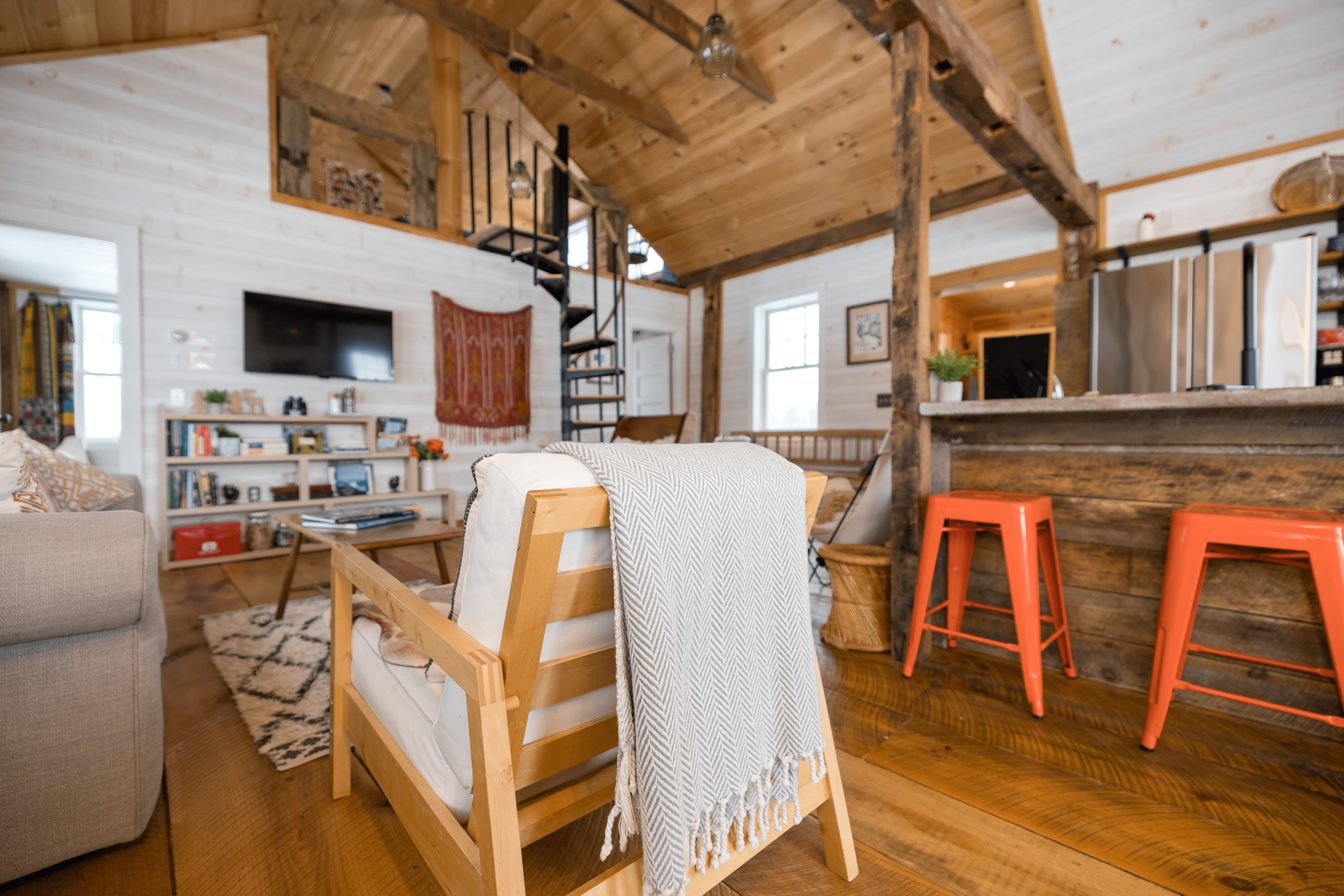How the government clampdown on Airbnb could affect landlords
Over the past decade, short-let holiday rentals have significantly grown in popularity. Airbnb in particular has become one of the most well-known booking sites for holiday rentals in tourist hotspots across the country.

According to Gov.uk, Airbnb has rapidly grown after opening its doors in the late 2000s, to the point they recorded roughly 1 billion users worldwide by late 2021. The short-let industry has proven to be a huge asset to the nation. Airbnb’s UK Insights Report (2018) found that hosts and guests on Airbnb generated £3.5 billion in economic activity for the UK, boosting the incomes of UK residents, and helping independent restaurants/businesses reach a wider client base. In their ‘Short-term lets registration white paper’, their Executive Summary mentions the abundance of opportunity Airbnb-style lets provide the UK tourism economy.
Although short-let properties have their benefits, they have brought issues to local communities in popular tourist areas across the country.
The dramatic increase in these Airbnb-style properties in tourist hotspots has led to a decrease in property sale listings and long-term lettings in these areas. More landlords are converting to the short-term let industry, mainly for the financial benefit, leaving local buyers and renters with limited choice.
Many landlords have chosen to increase their monthly rent prices for current tenants. When considering the cost of living crisis in addition to this, locals are suffering severely.
Anti-social behaviour from tourists using Airbnb’s has also become a pressing issue for locals. Drunk, loud, and wasteful guests have been causing carnage, especially in more urban areas. Negligence in health and safety regulations around the short-term let industry has meant local communities are being provided minimal protection against these issues.
In recognition of this, the UK government is calling for evidence so they can gain better insight to the impacts, as part of their ‘Tourism Recovery Plan’. They plan to review the market, and the opportunities and challenges it creates for tourism communities and consumers.
Government’s plan of action
As part of the review and improvement plan, they’re calling for evidence to gain a deeper understanding of:
- The impacts of these holiday lets on local communities and the local housing market
- Application, awareness, and enforcement of health and safety regulations currently
- Impact of new potential policy responses
- Changes/growth of the short-term letting market.
The call for evidence will be used to guide the government on what is the most suitable course of action to help resolve these issues. They have agreed in their Tourism Recovery Plan to consider implementing a Tourist Accommodation Registration Scheme, similar to Scotland and Northern Ireland’s regulations.
Depending on the results of the call for evidence, the government may introduce these schemes in response, beginning with the least severe:
- Nothing at all
- Provide further information to the sector, e.g. an official booklet outlining legal requirements.
- Self-certification registration scheme: hosts/providers would need to register before operation, with no third-party checks.
- Registration scheme with light-touch checks: same as the previous, but including spot checks.
- Licensing scheme with physical property checks: short-term lets would only be able to operate when licensed and had physical checks to ensure regulations are complied with.
- Regulatory alternative to the registration system
Their aim is to improve the holiday letting marketing to benefit local communities more in popular tourist destinations. Local landlords could benefit from the review by enabling them more equal opportunity through potentially increasing the local accommodation supply for longer lets. As Tourism Minister Nigel Huddleston explained, “We want to reap the benefits of the boom in short-term holiday lets while protecting community interests and making sure England has high-quality tourist accommodation.”
Airbnb’s support
Airbnb has expressed their support for the government review in a recent news post, stating the review is “an opportunity to secure clear and modern rules that unlock the benefits of hosting for everyday families and clamp down on speculators, while giving authorities the information and tools they need to regulate home sharing effectively”.
In the summer of 2021, Airbnb investigated the impact of short-term lets in tourist hotspots by conversing with the local communities, towns, businesses, hosts, and policymakers. From this, Airbnb expressed their support for a registration system. In their view, hosts, local communities, guests and others would benefit from the introduction of an online registration system.
In their own effort to combat the issue of noise and anti-social behaviour inflicted on local communities by guests, Airbnb imposed their party ban in August 2020. After introducing the ban, the company reported a 63% decrease in the number of party reports across the UK. The plan received positive feedback from both accommodation hosts, and the local communities, thus reducing the negative impact. Guests who try to ignore the ban can face severe consequences, including account suspension or removal.
Further support from Airbnb for the government’s plans goes further, explaining in a recent News post “Airbnb recognises the housing and tourism challenges facing some communities in the UK and we want our platform to be the solution”. For the affected communities, the support shown by Airbnb may provide some reassurance.
Effect on landlords:
It’s no secret that Airbnb properties have taken over tourist hotspot areas. As Airbnb numbers have skyrocketed, so have local housing prices. While Airbnb numbers grow, the local housing market suffers, with sales and long term let listings decreasing dramatically. This decrease in numbers means supply is limited, and so house prices have shot up simultaneously.
Locals to these areas can no longer afford the housing prices, forcing them out of their hometowns. Local landlords also suffer with reduced supply of properties to let. As locals move away, and short-let landlords move in, local landlords face the struggle of decreasing numbers of tenants available, therefore impacting their profitability and revenue.
However, increasing regulation on Airbnb’s could lead to an improvement in the housing market.
Introducing increased regulation and licensing could lead to the decrease in short-let properties in the tourist areas of the UK. Short-term let landlords may choose to leave the short-let industry, meaning local landlords could potentially find themselves with more room for them to operate in.
If more properties are removed from the short-let market, then local house listings and long-term let listings could increase as a result. Supply for local landlords and tenants could therefore increase, hopefully providing further opportunity for the local communities. Locals who were previously struggling to find accommodation in their hometowns may be saved by the introduction of stricter legislation.
The aim is not to remove the short-term let industry, as it provides an abundance of opportunity. The aim is simply to control this industry, particularly Airbnb-style properties, in order to create more equal opportunity for local landlords and tenants, whilst still reaping the benefits of this industry.
This blog is only intended as a guide, and is not to be taken as legal advice. For further information regarding the short-let holiday industry, and the governments’ plans, please visit the Gov.uk website.


